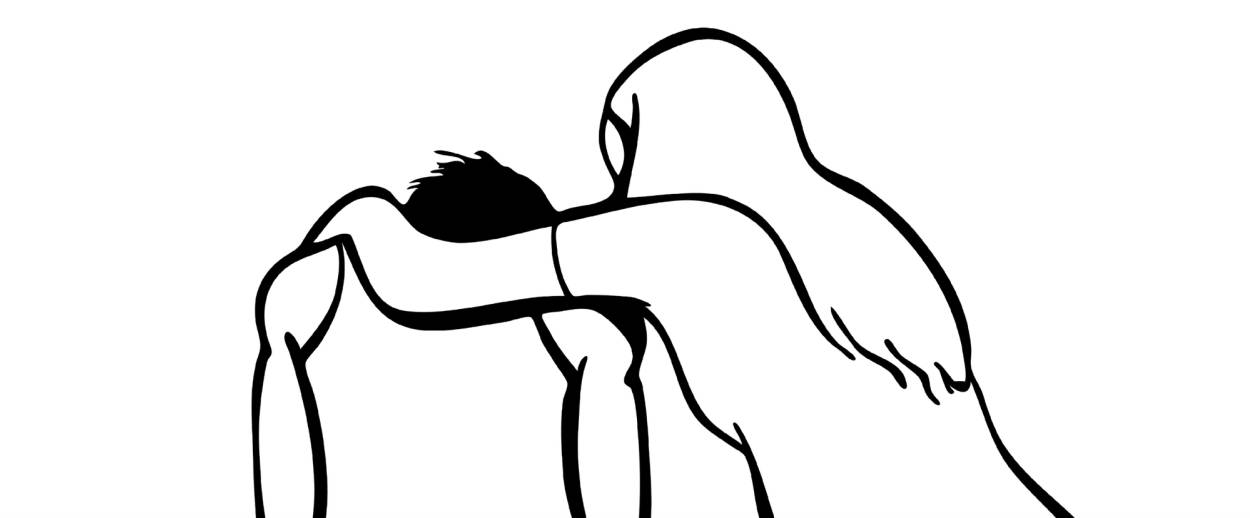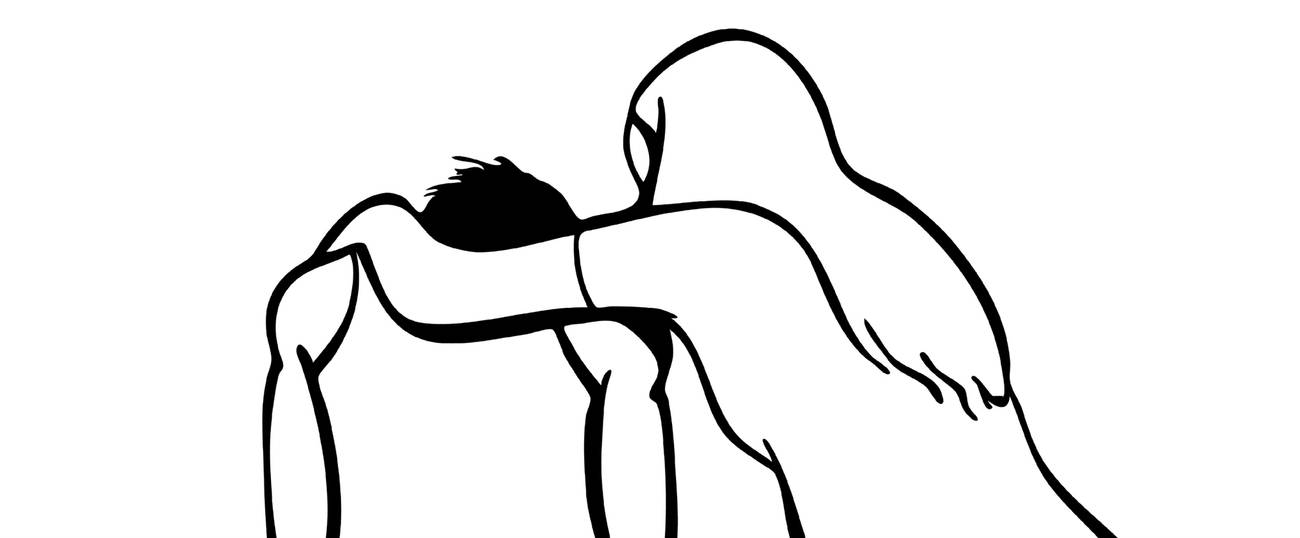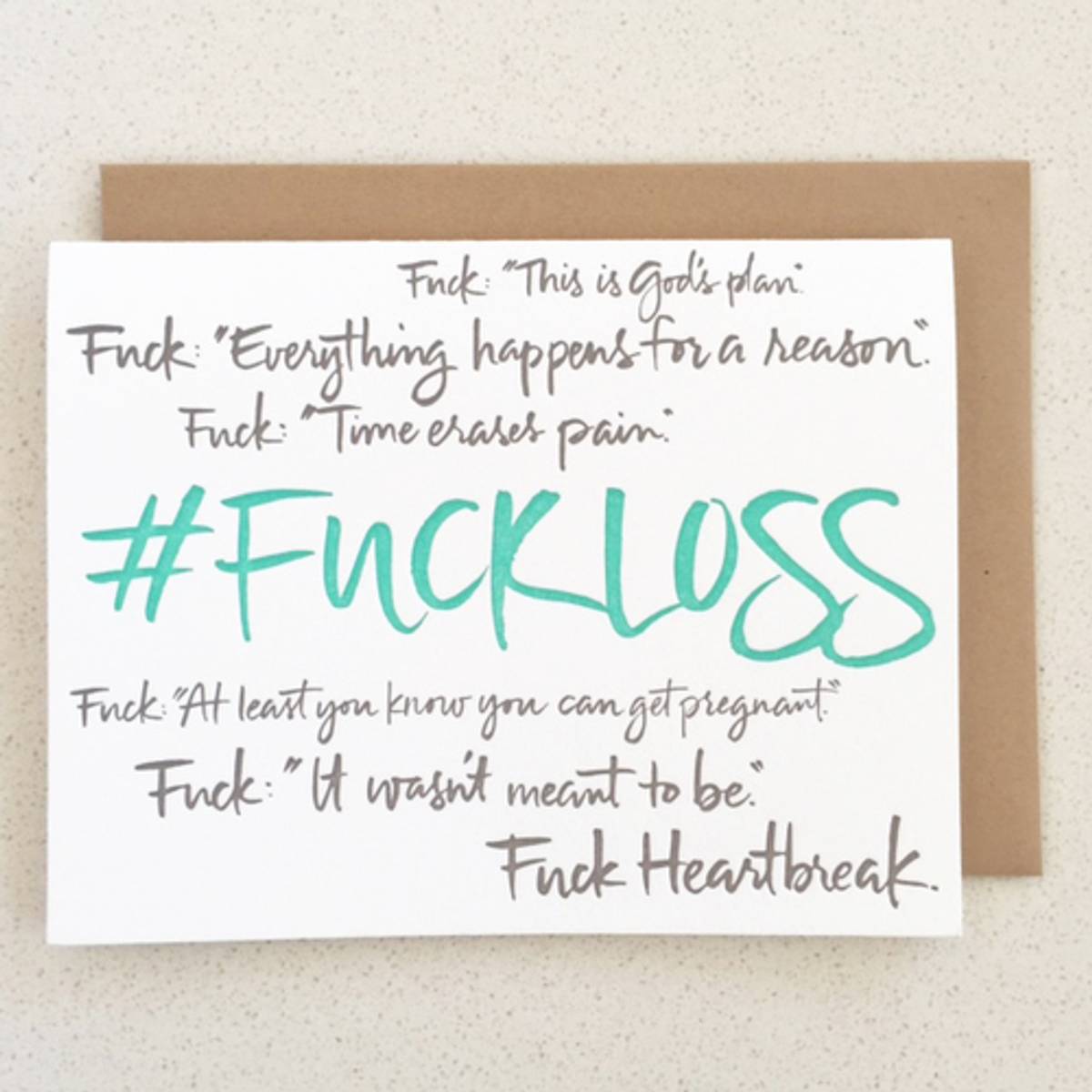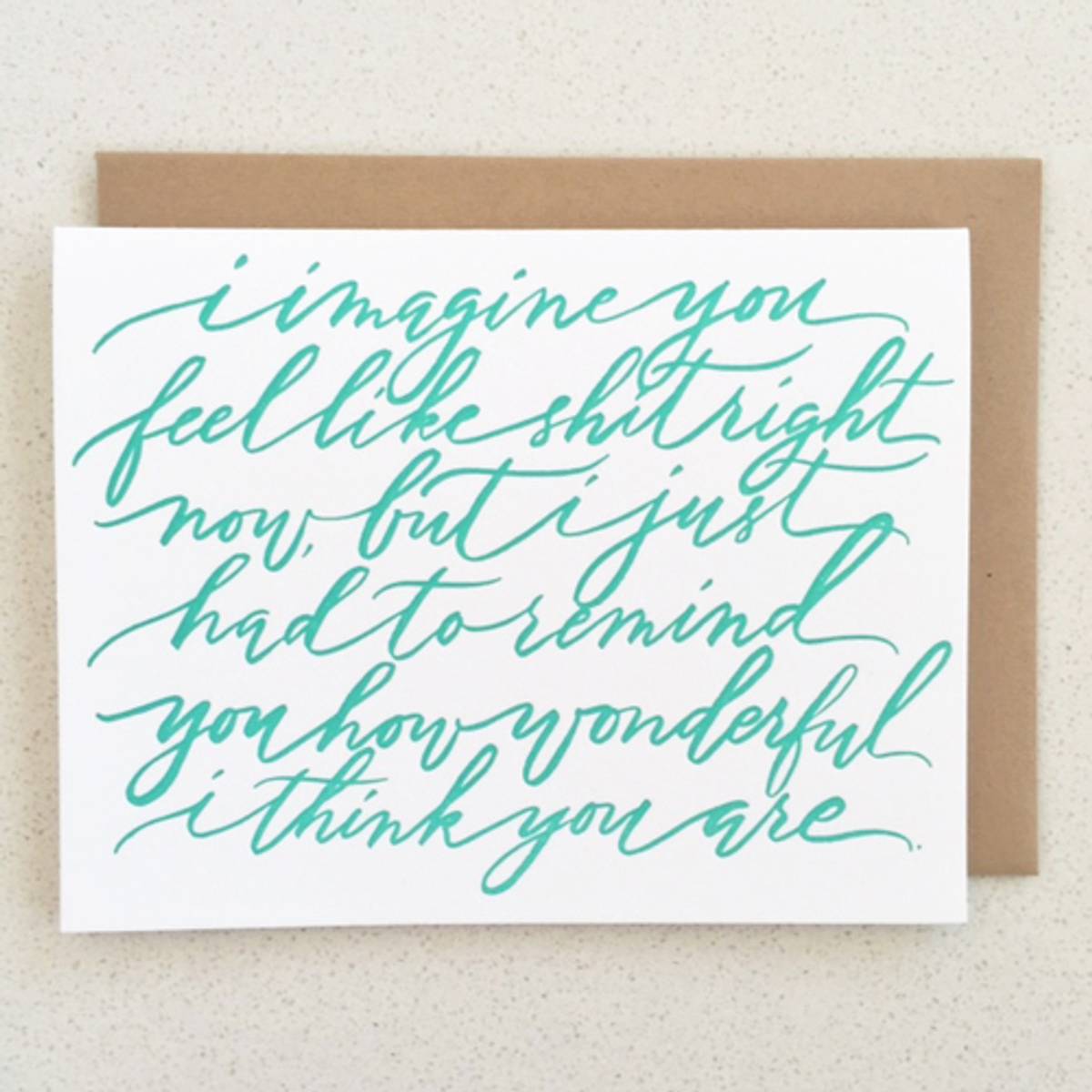Has a Friend or Relative Experienced a Miscarriage or Stillbirth? Send a Card.
A new line of greeting cards, which address loss and sorrow with humor and honesty, may help you express what you don’t quite have the words to say




I’ve written a couple of stories about my grief, confusion, and explosions of fury after I experienced a miscarriage in my callow married youth. I was shocked by the depth of my own feelings; my “I am a level-headed non-drama-queen” self-image was at odds with the reality of sobbing in a ball on the couch for weeks, lashing out at anyone who said anything well-meaning but stupid, unable to talk to any friend in possession of a human baby.
Now psychologist Jessica Zucker, who specializes in reproductive and maternal mental health, has created a line of greeting cards specifically aimed at women who’ve experienced such losses. Zucker herself had a nightmarish second-trimester miscarriage and published an affecting essay for The New York Times’ “Motherlode” column about it. She wrote the “experience eclipsed everything that had come before.”

Zucker’s line of cards launched at the beginning of October, in advance of Pregnancy and Infant Loss Remembrance Days, which falls on October 15. “Up to 20 percent of pregnancies end in loss,” she noted in an email, “and my hope is that this product will help give people the words/tools to show their support in a meaningful way.”
My favorite card, predictably, is the one featuring an oversized hashtag: #FuckLoss. (The rest of the text reads, “Fuck ‘This is God’s plan.’ Fuck ‘everything happens for a reason.’ Fuck ‘Time erases pain.’ Fuck ‘At least you know you can get pregnant.’ Fuck ‘It wasn’t meant to be.’ Fuck heartbreak.”) My second favorite is: “I imagine you feel like shit right now, but I just had to remind you how wonderful I think you are.” There are also lovely, more serious choices for people who do not enjoy profanity as much as I do, such as: “I’m deeply sorry for your loss. I’m here always.”

As I’ve previously noted, Judaism has historically observed that until a baby has lived 30 days, it’s not really a person. Fetuses, stillbirths, and babies who died before the 31st day were buried in unmarked graves that parents weren’t supposed to visit. “We do not mourn,” wrote both the Shulkhan Arukh and Maimonides. (Maimonides is lucky that I did not meet him right after my miscarriage.) Of the fetus our sage Rashi wrote, “lav nefesh hu”—it is not a person. There’s no soul. Which is no comfort when you’re sobbing.
Today, though, feminist organizations like Ritualwell are rethinking miscarriage and creating prayers and rituals to help healing. A card can serve a similar purpose; it says that sorrow is human, shared. It’s OK to hurt.
Zucker’s cards arrive on the heels of the launch of designer Emily McDowell’s Empathy Cards last May. At 24, McDowell was diagnosed with Stage III Hodgkin’s lymphoma and did nine months of radiation and chemo. “The most difficult part of my illness wasn’t losing my hair, or being erroneously called ‘sir’ by Starbucks baristas, or sickness from chemo,” she noted on her blog. “It was the loneliness and isolation I felt when many of my close friends and family members disappeared because they didn’t know what to say, or said the absolute wrong thing without realizing it.”
McDowell realized that there was a need for kind, funny and real cards; as she noted, “get well soon” doesn’t make sense when someone might not. So her cards, which have a more playful, hipper design than Zucker’s, say things like, “Please let me be the first to punch the next person who tells you everything happens for a reason,” and “When life gives you lemons I won’t tell you a story about my cousin’s friend who died of lemons,” and “I promise never to refer to your illness as a ‘journey.’” (But she has a couple of serious cards, too, like “I’m really sorry I haven’t been in touch. I didn’t know what to say.”)
I love the notion of being able to respond to a friend’s difficult situation with laughter as well as sympathy. I love that there are cards to help. And I love that our culture is becoming more encouraging of talking about grief, anger and fear.
Previous: My Abortion, My Miscarriage, and My Right to Have My Own Feelings
New Jewish Rituals Offer Comfort to Women Who Have Had Abortions
Marjorie Ingall is a former columnist for Tablet, the author of Mamaleh Knows Best, and a frequent contributor to the New York Times Book Review.